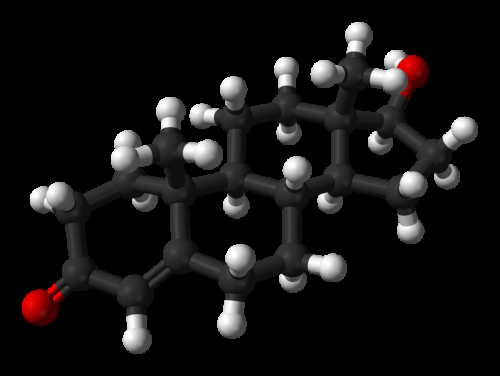American College of Physicians issues guideline for testosterone treatment in adult men

Physicians should prescribe testosterone for men with age-related low testosterone only to treat sexual dysfunction, the American College of Physicians (ACP) says in a new evidence-based clinical practice guideline published today in Annals of Internal Medicine.
"Physicians are often asked by patients about low 'T' and are skeptical about the benefits of testosterone treatment," said ACP President Robert M. McLean, MD, MACP. "The evidence shows that men with age-related low testosterone may experience slight improvements in sexual and erectile function. The evidence does not support prescribing testosterone for men with concerns about energy, vitality, physical function, or cognition."
ACP's guideline, endorsed by the American Academy of Family Physicians, applies to adult men with age-related low testosterone. It does not address screening or diagnosis of hypogonadism, or monitoring of testosterone levels.
Physicians should discuss whether to initiate testosterone treatment in men with age-related low testosterone with sexual dysfunction who want to improve sexual and erectile function based on the potential benefits, harms, costs, and patient preferences, ACP says. ACP also recommends that physicians reevaluate symptoms within 12 months and periodically thereafter. Physicians should discontinue testosterone treatment if sexual function does not improve, and they should not initiate testosterone treatment to improve energy, vitality, physical function, or cognition because the evidence indicates testosterone treatment is not effective.
"Given that testosterone's effects were limited to small improvements in sexual and erectile function in men with low testosterone levels, it is unlikely that screening men for low testosterone levels or treating men without sexual or erectile dysfunction and low testosterone levels would be effective." Dr. McLean said.
ACP suggests that physicians consider intramuscular rather than transdermal formulations when initiating testosterone treatment to improve sexual function because the costs are considerably lower for the intramuscular formulation and clinical effectiveness and harms are similar.
The annual cost in 2016 per beneficiary for testosterone replacement therapy was $2,135.32 for transdermal and $156.24 for the intramuscular formulation according to paid pharmaceutical claims provided in the 2016 Medicare Part D Drug Claims data.
"Most men are able to inject the intramuscular formulation at home and do not require a separate clinic or office visit for administration," said Dr. McLean.
Men experience a gradual decline in serum total testosterone levels as they age, starting in their mid-30s, at an average rate of 1.6 percent per year. This condition is referred to as age-related low testosterone. The incidence of low testosterone in the U.S. is approximately 20 percent of men over age 60 years, 30 percent over age 70, and 50 percent over age 80, though prevalence of low testosterone with sexual dysfunction symptoms (defined as at least three sexual symptoms with total testosterone less than 320 nanograms per decilitre) is lower. It is uncertain whether nonspecific signs and symptoms associated with age-related low testosterone are a consequence of age-related low testosterone levels or whether they are a result of other factors, such as chronic illnesses or medications.
ACP developed its recommendations in "Testosterone Treatment in Adult Men with Age-Related Low Testosterone" based on a systematic evidence review on the efficacy and safety of testosterone treatment in adult men with age-related low testosterone. The Minnesota Evidence-based Synthesis Center conducted the review funded by ACP. ACP's Clinical Guidelines Committee evaluated the clinical outcomes using the GRADE system for sexual function, physical function, quality of life, energy/vitality, depression, cognition, serious adverse events, major adverse cardiovascular events, and other adverse events.
Cochrane, a global leader and resource in evidence-informed health decision-making, has officially recognized ACP as a Cochrane US Network Affiliate. To receive such a designation, affiliates must show a proven record of supporting evidence-based practice and expertise and competencies in systematic reviewing and evidenced-informed health practice and policy. ACP is also a member of the Guidelines International Network, whose mission is to lead, strengthen, and support collaboration in guideline development.
More information: Amir Qaseem et al. Testosterone Treatment in Adult Men With Age-Related Low Testosterone: A Clinical Guideline From the American College of Physicians, Annals of Internal Medicine (2020). DOI: 10.7326/M19-0882
















